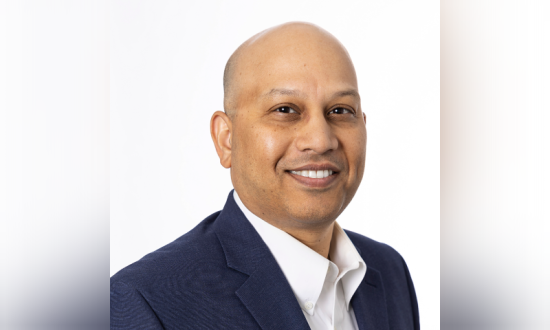Dr. Shantanu Bose is the Provost and Chief Academic Officer for DeVry University. He is responsible for driving the academic vision and providing leadership for achieving the highest academic quality. He oversees all academic affairs including the areas of curriculum and instruction, faculty and academic operations, accreditation and academic policies, academic programs, course and instructional design, the Registrar, and other educational processes. Additionally, Bose chairs the Program Enhancement Committee and co-chairs the Persistence and Retention Committee to achieve the highest standards in teaching, program development and student success.
Students and employers are signaling that skills are the new currency in the evolving job market. Employers have shown they will hire based on qualifications other than a degree. Evidence shows skills-based education is in high demand with 61% of students saying in a recent report by Instructure that they would pursue a skills-based learning opportunity to advance their careers. This is because the need for new skills is growing as technology continues to achieve rapid advancements such as with the emergence of AI, machine learning, and, more recently, generative AI. Those seeking to thrive in the workforce of the future will be required to continuously learn, upskill, reskill and transition their careers as needed.
However, higher education is behind in evolving to meet the changing demands. In a new study by the Council of Adult and Experiential Learning (CAEL), only 22% of faculty and staff stated their institutions had developed skill and competency frameworks for all of their courses and programs. Institutions need to adapt by focusing more on teaching students practical, in-demand skills they need for their careers.
The future of higher education depends on its ability to equip students with the skills and knowledge to succeed in an increasingly complex, technology-driven world. And skills-based learning is essential to making that future a reality.
What’s Behind Slow Adoption
While the need for skills-based curricula is clear, developing and executing such curricula is difficult. Curricula that incorporate skills-based learning align the content with industry needs, offer hands-on experience, and project-based learning. Aligning content to industry needs requires significant effort through meticulous feedback from employers. However, higher education continues to focus on outdated teaching methods—ones that focus on theory over practice, test-taking instead of project-based learning, and regurgitating of facts over application of the knowledge. Faculty often design courses based primarily on their theoretical expertise and interests rather than the skills currently in demand. If they are not actively engaged with their industry, they risk teaching outdated material that fails to align with workforce needs. Colleges and universities benefit greatly when they have practitioners who can bring relevant, real-world experience into classrooms. Nevertheless, curriculum changes overall require buy-in from the administration, faculty, accreditors, employers and more.
What’s Needed to Achieve Adoption
Higher education must do two things to broadly adopt skills-based learning into curricula: Collaborate and innovate. Staying closely connected to employers and certification providers is critical. Institutions can gain valuable insights into current and future skill requirements by partnering with industry leaders. For instance, at DeVry, we meet regularly with national advisory committees comprised of employers to review our programs and courses to validate that they meet industry standards and make changes as needed. These employer partnerships help to identify gaps in our curriculum and make skill-based learning as effective as possible. Further, colleges and universities must map out how and where to integrate relevant skills into courses. Mapping specific skills and competencies to program learning outcomes can help students graduate with knowledge and abilities that translate directly into the workplace. Once implemented, skills-based courses require continuous assessing, as previously mentioned, to authentically evaluate learning outcomes.
Another Potential Missing Link
Additionally, I think the standardization of skills, or a shared skills taxonomy, is an important missing link in unlocking the potential of broader adoption of skills-based learning in higher ed. Each organization has its way of defining and describing skills. Likewise, colleges and universities also have their own ways of describing their curricula. Without a common language for skills, we create confusion and inefficiency for students who wish to pursue skills-based learning. Without a common skills taxonomy, employers struggle to communicate what skills they need; job seekers have trouble demonstrating their capabilities and higher education institutions can’t keep pace with evolving demands of the job market. Notably, the lack of standardization makes skills-based credentials and hiring practices difficult to scale across regions and industries.
Some efforts are underway to develop a standardized skills taxonomy. For example, the World Economic Forum has proposed a global skills taxonomy as a first step in shifting toward a skills-based job market in support of its Reskilling Revolution Initiative, an ambitious goal that aims to provide 1 billion people with improved education, jobs and skills by 2030. However, to date, the adoption of a standardized skills taxonomy that serves individuals, employers and education alike is limited, and no single standard has emerged.
Higher Education Must Embrace a Renewed Growth Mindset
The challenges of transitioning to skills-based learning are many, but the costs of failing to do so are greater. Institutions risk graduating students ill-equipped for the modern job market, while employers are facing a skills gap that widens each year. To meet the demands of the future of work, higher education must embrace a renewed focus on ongoing skills development and take steps to incorporate skill-based learning in the curriculum.
Similarly, students must approach their education with a lifelong learning mindset that will ensure career success and longevity. Higher education institutions must innovate to serve lifelong learners through agile programs and structures to support them in the fast-changing workplace.




